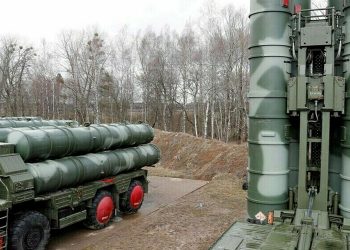In the past few days, the Supreme Court, while delivering a verdict in the case of electoral symbols, excluded the Pakistan Tehreek-e-Insaf (PTI) from the electoral game.
In the country’s political landscape, decisions from courts and administrative authorities in cases like these are not uncommon. In the past, various political parties have faced similar situations with different foundations, and their overall impact on election results and the political environment has varied.
There is no doubt that the Pakistan Tehreek-e-Insaf is the most popular party in the country, and its popularity is not only highly dynamic and active compared to other political parties but is also consistently visible in the political arena. While other political parties also have roots in the public, the key difference between them and the PTI is that PTI’s supporters are exceptionally enthusiastic, passionate, active, and ahead of other parties in terms of motivation. The emotional connection and exaggerated relationships with the party have led to the situation where it has now been excluded from the electoral arena.
It is undeniable that legally and administratively, power and authority can be utilized to sideline any political party rooted in the people. However, the popularity and existence of a political party cannot be completely eliminated.
Regardless of the debate about the accuracy of the Supreme Court’s decision from a legal and technical standpoint, it should be noted that the existence of the Pakistan Tehreek-e-Insaf is not completely terminated. In the country’s political history, many political parties with popular support have faced even more challenging situations, and many political parties have been officially declared defunct. However, these parties changed their policies, faced challenges with a positive mindset, and are still present in the electoral arena today.
Regarding the decision of the Supreme Court, when seen from a legal and technical perspective, labeling this decision as emotionally motivated is not correct. The basis of this decision is a continuous process of legal responsibilities related to the intra-party election.
The case of the intra-party election was not created overnight; it was present on the Election Commission’s table even when the Pakistan Tehreek-e-Insaf was in power. The Election Commission continued to alert and remind the PTI that intra-party elections should be conducted according to the rules and regulations. However, it seems that the PTI leadership did not take the Commission’s directives seriously, and the matter was consistently overlooked, leading to the current outcome.
Unfortunately, the PTI leadership has built a policy of labeling every issue as a political ploy, drawing a clear line between opponents and supporters. This mindset, which was adopted during the vote of no-confidence in the National Assembly, resulted in forceful takeovers of institutions based on the party’s favorable or unfavorable stance.
After the Supreme Court’s decision to withdraw the electoral symbol, the PTI leadership has decided to appeal, raising the question of whether its party’s electoral matters were used as an excuse, while other parties were not questioned.
It is within the PTI’s right to appeal the decision; however, saying that it did not happen to other parties is a moment of reflection. The PTI claims to be different from other parties in every aspect; it shouts the loudest against nepotism and injustice, but through the cases of Justice Wajih, Akbar S. Babar, Bushra Bibi, Farah Dogar, BRT, and Buzdar, it has proven that it is not different from other parties. Talks of merit, transparent elections, honesty, and principles are just a deceptive facade.
This situation is another but stringent test of the PTI leadership’s wisdom. It still has the opportunity for honorable comeback if it brings positive change in its thinking, behavior, and approach. Utilizing this opportunity to channel the emotions of the country’s large youth population positively and making the country and the nation better is also a national responsibility for the PTI.


























